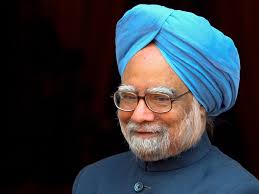On 26th December 2024, India lost one of its architects, former Prime Minister Dr Manmohan Singh. For months now, Singh’s health was on the low. But the former prime minister’s meticulous approach to work could not stop him from working.
“I regret because of my ill health. I will not be able to record an interview for the time being.” were some of Singh’s last responses to the press. A bureaucrat by heart, Manmohan Singh died at AIIMS, New Delhi at the age of 92 with his wife, Gursharan Kaur, and three daughters by his side.
The Political Legacy of Singh
Manmohan Singh will always be remembered in the history of India for opening its economy to the world. This step in 1991 lifted a record number out of poverty and gave the country a global stage. As the prime minister from 2004 to 2014, he steered the country successfully through the global financial crisis and made a place for the country in the new world order.
An accidental politician and an academic, the soft-spoken Manmohan was born in Gah, situated in present-day Pakistan. His family migrated to India during the partition. Singh went further to study at Oxford and Cambridge University, where he developed values of a free market and the welfare state. Taking what he studied at college, Manmohan Singh led the UPA government for 10 years at the Centre. During that time, he ensured many financial reforms and social welfare measures, hand in hand.
Singh also navigated the landmark India-US nuclear deal, as a soft-spoken politician. By debuffing the left pressure group without causing much censorship, Singh managed to salvage the nuclear deal. During his Prime Ministership, industrial growth showed positive signs, causing comfort to the middle class and Indian businesses.
Finally, in 2013, hurt by Rahul Gandhi’s ordinance tactics, Manmohan Singh wanted to step down as the prime minister. But because of the big responsibility on his shoulders, he stayed on. Rahul Gandhi later apologised to the elderly statesman, as told by Manmohan Singh to the Indian Express. A year later, in 2014, because of the increasing charges of corruption and controversies against the Congress, the party had to step down and is unable to recover from its loss in 2014 until today
Other Sides of Singh
Prime ministership is not all that defines Manmohan Singh, as he has held many other top positions in the country. Singh served as the economic advisor, economic affairs secretary, RBI governor, planning commission deputy chairman, finance Minister, and then the head of the government at the end. Even though the opposition has duped Manmohan Singh as a weak Prime Minister along with media narratives portraying him as incapable of politics, he believed in his party and the nation.
Before becoming the first Sikh Prime Minister of the country to hold office for a full term after Jawaharlal Nehru, Manmohan Singh served as the economic advisor in the Ministry of Foreign Trade in the early 1970s. Because of his diligent work, he was pushed to become the finance minister in the Narasimha Rao government in 1991. He had a strong conviction and limited self-ego, which allowed him to do a lot from inside the cabinet.
Former US President, Barack Obama, reckoned Singh as a man of ‘uncommon wisdom and decency’. His statics would involve less verbosity and more dialogue.
“When the prime minister speaks, people listen, particularly because of his deep knowledge of economic issues, as well as the fact that he understands that as India rises as a world power, not just a regional power, it also has numerous responsibilities to work with the rest of the world community around issues of peace and prosper.” said former US president, Barack Obama.
After the news of the demise of the former Prime Minister, social media was stormed with posts and condolences. President Dropadi Murmu and Prime Minister Narendra Modi paid rich tribute to the former PM. The wave of condolences flowed across party borders and ideological separations.
“One of those rare politicians who also straddled the world of academia and administration. In his various roles in public offices, he made critical contributions to reform the Indian economy. He will always be remembered for his service to the nation.” said President Murmu.


